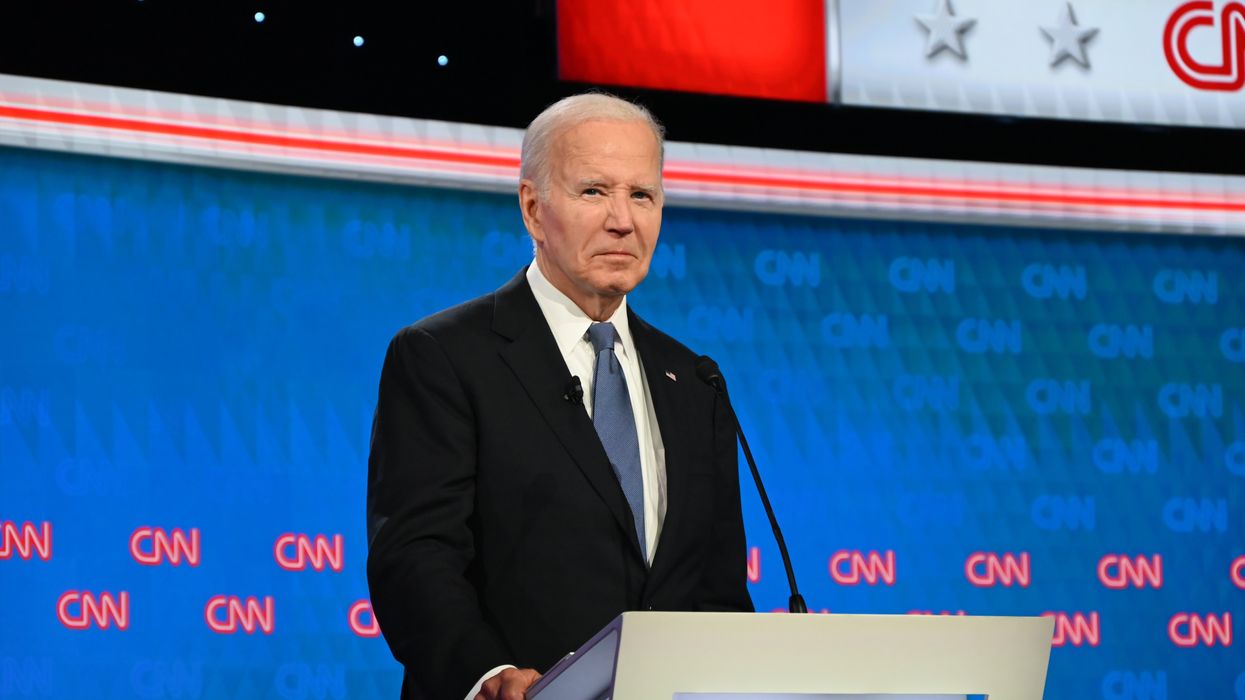Breslin is the Joseph C. Palamountain Jr. Chair of Political Science at Skidmore College and author of “A Constitution for the Living: Imagining How Five Generations of Americans Would Rewrite the Nation’s Fundamental Law.”
This is the latest in “ A Republic, if we can keep it,” a series to assist American citizens on the bumpy road ahead this election year. By highlighting components, principles and stories of the Constitution, Breslin hopes to remind us that the American political experiment remains, in the words of Alexander Hamilton, the “most interesting in the world.”
Getting into America’s highest political offices is hard. Getting out is harder.
President Joe Biden’s disastrous debate performance has intensified calls for him to step aside. Not even 24 hours after his poor showing, The New York Times took the extraordinary and unprecedented position that the sitting president should immediately pass the torch to a more energetic and electable candidate. “The greatest public service Mr. Biden can now perform,” the editorial board declared, “is to announce that he will not continue to run for re-election.”
Regrettably, The Times has it right. After more than a half-century of dedicated and decorated service, the moment has come for Biden to depart the political stage. He must retire. All citizens, regardless of party affiliation, should agree that the challenges our nation faces require political leaders to be at the peak of their game, not when their mental acuity is in obvious decline.
Democrats have been here before. In 2013, faced with the very real possibility that the Republican Party would gain majority control of the Senate, President Barack Obama invited Associate Justice Ruth Bader Ginsburg to lunch. He claimed that he wanted to build a “better rapport” with the Notorious R.B.G., but most in Obama’s inner circle understood that the president’s objective was to gently nudge her towards retirement. Obama had the foresight to recognize that time was running out on the Democratic Party’s ability to maintain a strong liberal bloc on the Supreme Court. He wanted the chance to appoint a like-minded jurist to the bench. That chance wouldn’t come. Ginsburg flatly turned the president down, saying, “I think [you] would agree with me that [the timing of my retirement] is a question for my own good judgment.”
It turned out to be poor judgment. Ginsburg, generally considered a jurisprudential titan by court watchers on both the left and the right, would remain in her post for seven additional terms. Save the historic 2015 ruling in Obergefell v. Hodges that constitutionally recognized same-sex marriage, Ginsburg and her liberal allies often found themselves on the losing end of major legal skirmishes. She admitted to considerable frustration. When she died at her home two weeks before the start of the court’s 2021 term, her authority among The Nine had waned.
Ginsburg’s tragic death was the final ingredient in the conservative constitutional revolution. Amy Coney Barrett, Ginsburg’s replacement, might share chromosomes and an elite legal education with the late liberal giant, but little more. She is Ginsburg’s ideological foil. Barrett voted with the majority in overturning Roe v. Wade, defended marriage as a union solely between men and women, and supported men in workplace sexual harassment claims. Indeed, it’s ironic that the passing of the greatest champion of gender equality this nation has ever seen helped to solidify a new judicial patriarchy. The Obama lunch takes on added significance with the clarity of hindsight.
No one should doubt that Joe Biden and Ruth Bader Ginsburg are American patriots. They selflessly gave and gave to their country and to the causes of freedom, equality and justice. They exhibited integrity and decency throughout their long careers. America needs more Joe Bidens and Ruth Bader Ginsburgs. We need more heroes on both sides of the aisle. But we also need our political leaders to know when it’s time to leave.
Ginsburg’s choice to remain on the bench had tragic consequences for her deepest convictions. The same is true if Biden remains in the race. The issues Biden cares most about — civil rights, health care, the working people of America, immigration, abortion, democracy and so on — as well as the degree of dignity the office must engender, are all in jeopardy should he choose to stay the course. And that doesn’t even account for the correlating likelihood that his obstinacy will significantly impact down-ballot races. Biden has an obligation to all Americans to contemplate the considerable stakes at hand. They’ve rarely been higher.
America’s first president, George Washington, confronted similar stakes in similar times. The country was in a bad way in 1796, and Washington was old. He faced a choice: remain in America’s highest office or return to his estate on the Potomac. He chose the latter.
“Friends and Citizens,” his Farewell Address began, “it appears to me proper that I should now apprise you of the resolution I have formed, to decline being considered among the number of those out of whom a choice [to be President] is to be made. I beg you, at the same time, to do me the justice to be assured that this resolution has not been taken without a strict regard to all the considerations appertaining to the relation which binds a dutiful citizen to his country; and that in withdrawing, I am influenced by no diminution of zeal for your future interest, no deficiency of grateful respect for your past kindness, but am supported by a full conviction that the step is compatible with both.”
Take the step, President Biden. Take the step.




















Trump & Hegseth gave Mark Kelly a huge 2028 gift